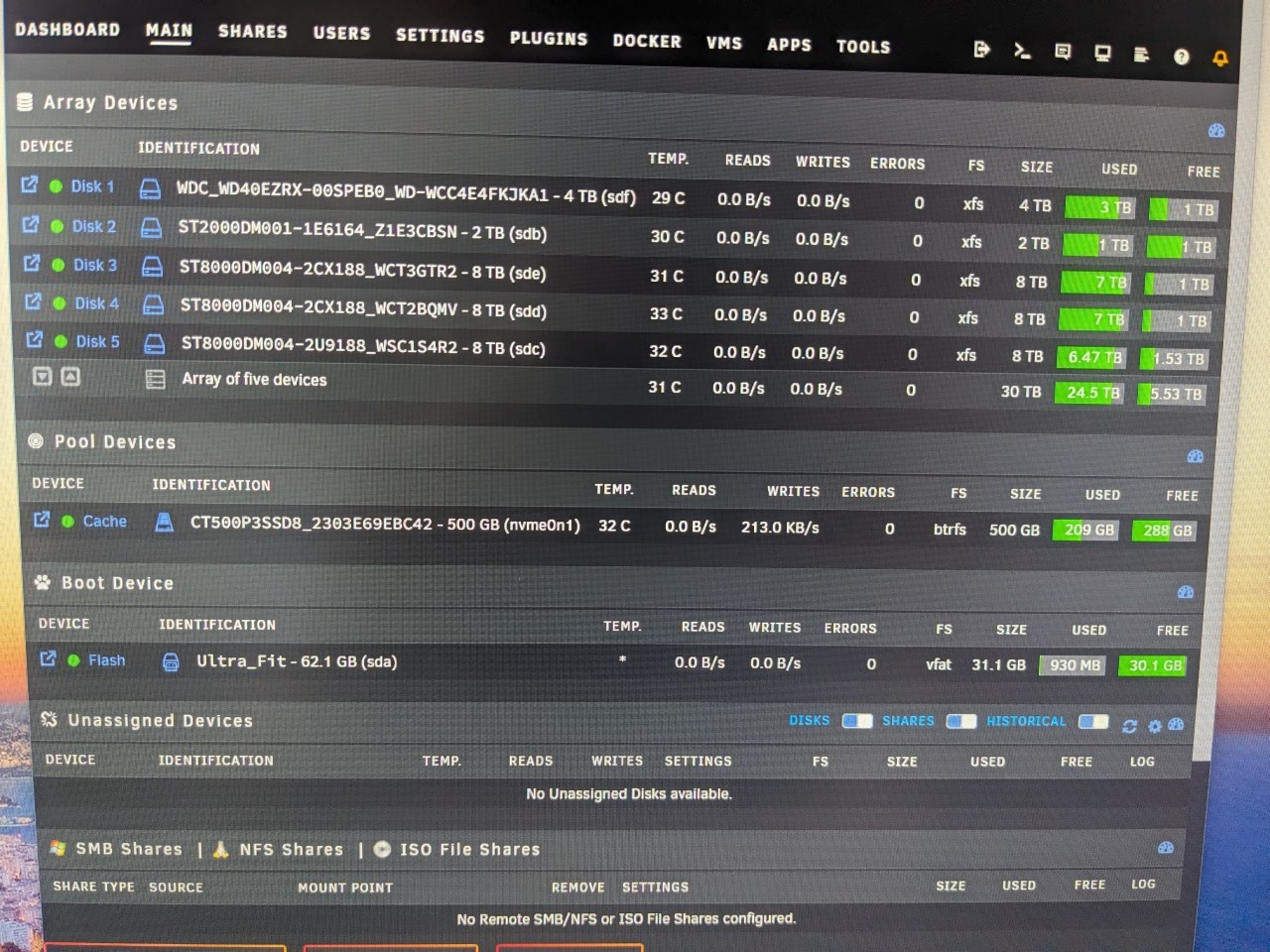How big is your Plex library?
This is the most likely culprit. My cache has about 200 GB and Plex is just over 75 GB.
Another thing to check is your vDisk size in your docker settings.
Plex library is 24.5tb
Do you have thumbnail generation turned on (like fribbtastic mentioned)? That could be a reason why.
In the web interface, click the “>_” icon in the top right to open the terminal. Then type du -sh /mnt/user/appdata and post the results here
189G /mnt/user/appdata
I made a mistake in that code line. It should be this instead
du -sh /mnt/user/appdata/*
Sorry about that!
EDIT: but, this size is nearly the same size as your cache drive. If you only have Plex installed, it’s my assumption that you do have thumbnail generation turned on. Doing so can take a lot of storage space if you have a large media library
yea, its plex
- 188G /mnt/user/appdata/Plex-Media-Server
- 0 /mnt/user/appdata/PlexData
- 4.0K /mnt/user/appdata/binhex-minecraftserver
- 0 /mnt/user/appdata/data
- 12K /mnt/user/appdata/ddclient
- 783M /mnt/user/appdata/firefox
- 0 /mnt/user/appdata/go-auto-yt
- 660K /mnt/user/appdata/krusader
- 0 /mnt/user/appdata/passthroughvpn
- 107M /mnt/user/appdata/pihole
- 28K /mnt/user/appdata/speedtest-tracker
- 0 /mnt/user/appdata/transcode
- 18M /mnt/user/appdata/xteve
- 11M /mnt/user/appdata/xteve_vpn
How can I delete the rest, that isnt plex? they are old Dockers which I have removed.-
open the console and delete them through that (look up the rm command), you could also use a docker container called Krusader to do that in a more "clicky" way.
To add, Plex specifically can be that large when you have thumbnail generation enabled.
Interesting, in didn't think Plex would be the culprit.
Has this actually caused any problems? You have plenty of space on the cache drive so I'm not sure why it's such a concern.
It turns out, its not a problem, its Plex, the problem I currently have, is that I have a share I want to remove, but I can't, as its not empty. But when I access the share and try to delete seemingly empty folders, I can't, and I therefore can't remove the share.
One other suggestion is to start in maintenance mode and check the filesystem for errors. I had one strange one some time ago where it wasn’t showing errors but was showing space used. When I scanned the drive I got my free space back.
If there is a share there that won’t delete, it’s not empty. You can use the file manager to view everything inside and erase all of it, or alternately do it from a shell prompt (carefully).
unRAID
A community for unRAID users to discuss their projects.
